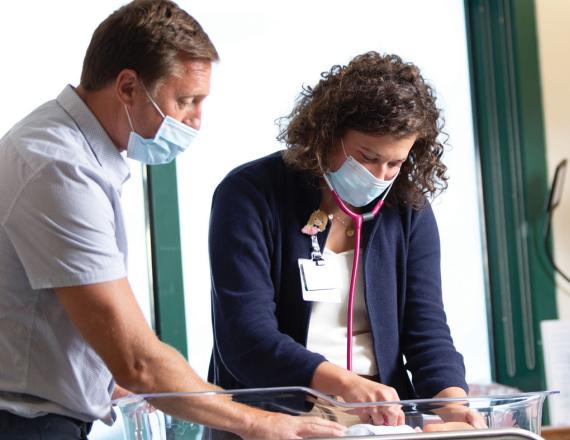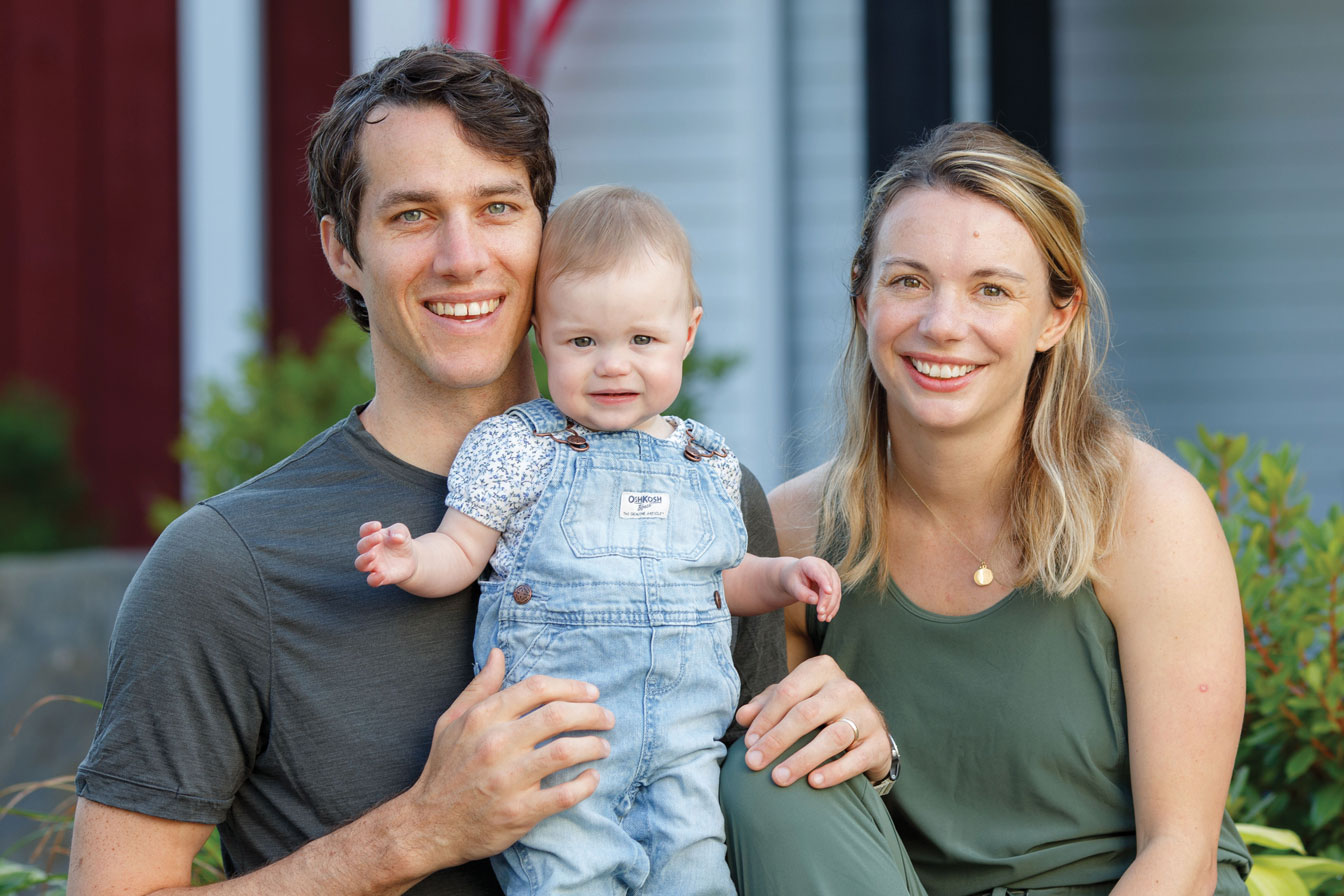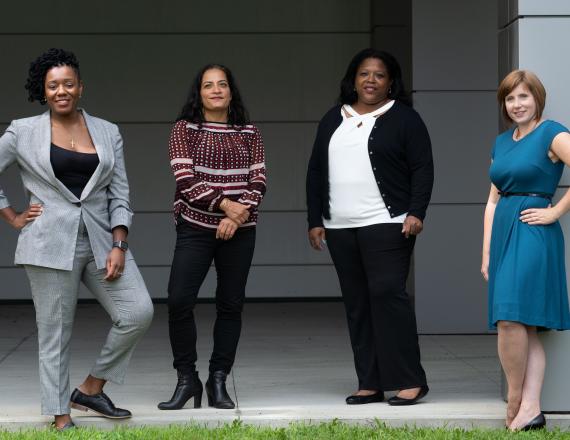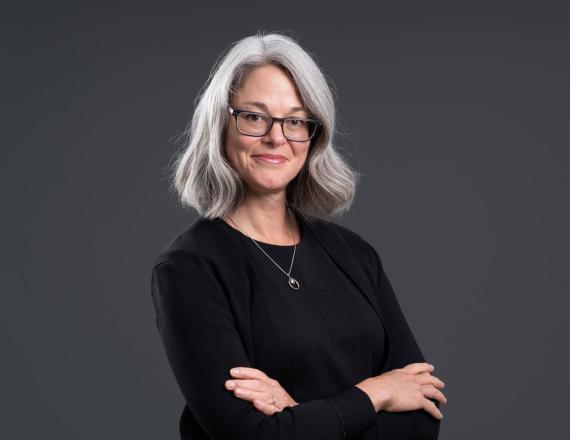Philanthropy Powers Innovation: The Susan and Richard Levy Health Care Delivery Incubator
Every big idea is a seed of change, but it takes support to help them grow. Philanthropy is crucial to give investigators the time and resources they need to develop their ideas, collect data, and make life-changing discoveries. In 2020, a generous gift from Susan and Richard Levy helped establish the Levy Health Care Delivery Incubator—a program to promote the development of pioneering solutions that reimagine care and improve outcomes for people experiencing illness or other medical events.

Tyler Hartman, MD, a neonatologist at Children’s Hospital at Dartmouth-Hitchcock, tells a tale of two babies. Both born weeks early, Owen was on a ventilator to help him breathe as he fought a brutal infection, and Libby was being fed through a nasogastric (NG) tube but was otherwise stable and healthy. So why was Owen at home, and Libby in the Neonatal Intensive Care Unit (NICU)?
Doctors, nurses, and other health professionals see discrepancies and weaknesses like these in healthcare delivery, and they envision solutions. But there’s little opportunity for them to be proactive when they spend their busy days reacting. Time outside of a system is essential to making changes within it.
A gift to the Geisel School of Medicine from Susan and Richard Levy, PhD, D’60 launched the Susan & Richard Levy Health Care Delivery Incubator, a joint initiative between Dartmouth College and Dartmouth-Hitchcock (D-H) and based at The Dartmouth Institute for Health Policy & Clinical Practice. The Incubator supports projects focused on improving patient outcomes, prioritizing patient- and family-centered care, reducing spending, and promoting scholarly work. Importantly, it gives project leaders protected time in which to further their ideas. It was co-founded by Amber Barnato, MD, MPH, MS, director of The Dartmouth Institute and a palliative care physician at D-H and Mary Oseid, D-H’s senior vice president of regional strategy and operations.
The COVID-19 pandemic has magnified how resourceful and innovative our clinical teams are. They often have tremendous ideas about how to improve care for patients and families. The Levy Health Care Delivery Incubator gives our care teams the time and resources to develop those ideas and, ultimately, implement the best ones.”
Deep Understanding, Successful Solutions
“The COVID-19 pandemic has magnified how resourceful and innovative our clinical teams are. They often have tremendous ideas about how to improve care for patients and families,” says Joanne M. Conroy, MD, CEO and President of D-H and Dartmouth-Hitchcock Health. “The Levy Health Care Delivery Incubator gives our care teams the time and resources to develop those ideas and, ultimately, implement the best ones.”
Teams are selected through a competitive pitch process, then spend 12 months developing and testing their healthcare delivery interventions at D-H. Scholars from throughout Dartmouth College with expertise in fields like engineering, business, and study design collaborate with clinicians to bring their solutions to fruition. In addition to funding that protects clinicians’ time, team members have access to financial and material support from the Incubator, including project management, analytics, and information technology, and mentoring from a network of Dartmouth College faculty and D-H senior leadership.
“Clinicians have a deep understanding of systemic problems that they’ve been seeing throughout their careers,” says Nirav Kapadia, MD, MS, medical director of the Incubator, medical director of radiation oncology services at Dartmouth’s and Dartmouth-Hitchcock’s Norris Cotton Cancer Center North, and an assistant professor of medicine at Geisel and of The Dartmouth Institute. “Part of our mission is to help them find experts from the College who can help them think through their problem differently, and solve it successfully.”

Born six weeks early and weighing just under 4 pounds, Libby Hale spent her first days in Dartmouth-Hitchcock’s Neonatal Intensive Care Unit. Though she was small and needed to be fed through a nasogastric tube, Libby was otherwise healthy—making her an ideal candidate for the Hope Grows at Home program. Abbie and Matt Hale were overjoyed that they could bring their daughter home in days instead of weeks, and they felt comfortable managing Libby’s complex nutritional needs because of the exceptional support they received from the Hope Grows at Home team. Now just over a year old, Libby is thriving.
A Better Way of Doing Medicine
Among the first cohort of funded projects was Hope Grows at Home, which redesigned care for stable preterm infants by transitioning their feeding from the hospital to the home with extensive medical support and monitoring. Many preterm babies like Libby remain in the NICU just to feed and grow. They are otherwise healthy, no longer in need of specialized medical care, and filling beds that could be used by critically ill newborns. Data suggest that extended NICU stays can affect infant development, cause emotional distress for families, and are a financial burden on hospitals.
Led by Hartman, who’s also an assistant professor at Geisel, and nurse practitioner Kathryn Richards, MSN, APRN, the project gave families the tools and education they needed to care for their growing babies at home. They were taught how to replace an NG tube; were provided with a continuously recorded monitoring system that sends data securely to D-H; and received daily check-ins with D-H caregivers via telemedicine, along with home visits.
This was an opportunity to do something locally that’s focused on improving care and cost reduction. If you can nail those two, that’s a better way of doing medicine.”
To date, 31 babies have been through the program. There has not been a single adverse event and parents have reported 100% satisfaction. And the project generated innovations with far-reaching impact: Collaborating with engineers from Thayer, Hartman and Richards designed a new NG tube that’s easier to place and are now working on patenting their invention; physicians throughout D-H are considering ways the continuous monitoring system may allow them to safely send their patients home sooner; enhanced feeding strategies developed for the program have been implemented in D-H’s NICU; and Hartman and Richards have developed a collaborative nationally with centers running similar programs to share data.
“We wouldn’t have been able to test any of these ideas, which have been on our list for a number of years, without the support of the Incubator and Susan and Richard Levy,” says Richards.
Hartman adds, “This was an opportunity to do something locally that’s focused on improving care and cost reduction. If you can nail those two, that’s a better way of doing medicine.”
Fruits of This Labor
With the third round of projects about to get underway, Kapadia notes that the Incubator is meeting its mission. “We’re engaging our clinical and non-clinical staff, providing better care for patients, and demonstrating that the improved care can be delivered at a lower cost.” Teams have started applying for external funding based on their results, and sharing their learnings through publications and presentations.
The Incubator is serving as a model for a similar program at Stanford University as well, where Dick Levy sits on the Board of Advisors. The former CEO and chairman of Palo Alto-based Varian Medical Systems, Levy is passionate about lowering costs and improving access, convenience, and outcomes for patients.
“I chose to fund the Incubator at Dartmouth because of its close-knit academic medical community and multidisciplinary approach to problem solving,” Levy says. “The first cohort of projects simultaneously addressed cost, outcomes, and access—the three major goals of healthcare reform—in a very realistic way, proving that we can accomplish them all.”
To learn how you can support innovation in healthcare delivery, please contact Bob Holley at 603-369-1129 or Robert.D.Holley@dartmouth.edu.

